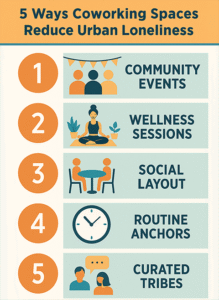Discover 18 key strategies on how to retire early in India, covering saving, investing, and planning. Equip yourself with the knowledge to retire on your terms.
Everyone dreams of an early retirement – the freedom to wake up without an alarm clock, explore new hobbies, or simply enjoy life without the constraints of a 9-to-5 job. However, for most, this remains an elusive dream. In a developing country like India, where social security benefits are scarce and inflation is high, achieving early retirement may seem like a mammoth task. But it’s far from impossible.
In this comprehensive guide, we’ll show you how to navigate the road to early retirement in India. We’ll discuss practical strategies, provide relevant examples, and arm you with the knowledge you need to secure your financial future. Early retirement isn’t a journey you can embark on haphazardly; it requires diligent planning, disciplined saving, intelligent investing, and making smart financial choices throughout your working years.
The fundamental difference between early retirement and conventional retirement is the time factor. With fewer years to save and more years to spend, the stakes are indeed higher. The task might seem daunting, but with the right approach, early retirement can be a tangible reality.
In this ultimate guide, we will walk you through 18 key ideas that will serve as your roadmap to early retirement. These strategies will focus not only on wealth creation and preservation, but also on the often-overlooked aspects of health insurance, estate planning, and sustaining a lifestyle aligned with your dreams and aspirations.
Remember, early retirement doesn’t mean an end to earning income; it simply means you have sufficient financial freedom to choose if, when, and how you want to work. So let’s delve into these strategies and make your early retirement dream a reality.
Key Ideas for Early Retirement
1. Define Your Retirement Goals:
Early retirement doesn’t have the same meaning for everyone. For some, it might mean a quiet life in the countryside, for others, it could be travelling the world or starting a second career. Defining your retirement goals will give you clarity on how much you need to save and invest.
Consider Mr. Sharma, who plans to retire at 45 and live a modest life in his hometown. He estimates his monthly expenditure to be around INR 50,000 (considering inflation). He would need a corpus significantly different from Mr. Kapoor, who wants to retire at the same age but dreams of travelling internationally. Your goals will shape your financial strategy.
2. Start Saving Early:
The earlier you start saving, the more time your money has to grow. Thanks to the power of compound interest, a small amount saved regularly can grow into a substantial corpus over time. Consider investing in retirement-oriented funds like the National Pension Scheme (NPS), Public Provident Fund (PPF), or an Employee Provident Fund (EPF) which offer good returns and tax benefits.
3. Budgeting:
Budgeting plays a critical role in successful financial planning. It helps you monitor your income and expenses, making it easier to identify areas where you can save more. For example, Ms. Gupta cut down her monthly shopping expenditure by 30% and redirected those funds into her retirement savings.
4. Diversify Your Investments:
Diversification is a risk management strategy where you spread your investments across various financial instruments. This can include equities, mutual funds, real estate, bonds, and more. A well-diversified portfolio reduces the risk of losses and provides steady returns.
5. Health Insurance:
Healthcare costs are soaring in India. Having a robust health insurance policy ensures that medical emergencies won’t drain your retirement corpus. An adequate health insurance cover can make a massive difference in your early retirement journey.
6. Consider Inflation:
Inflation is a silent wealth eroder. Make sure your investments earn a return higher than the inflation rate to ensure your corpus’s real value doesn’t diminish over time.
7. Minimize Debt:
High-interest loans can be a significant drain on your resources. Strive to pay off high-interest debts like credit card debts and personal loans as soon as possible.
8. Increase Your Earning Potential:
Consider ways to increase your income. This could be through upskilling, taking on a side job, or starting a part-time business. For instance, Ms. Rana, a software engineer, started freelance coding projects over the weekends, augmenting her income and her savings for early retirement.
9. Build an Emergency Fund:
Life is unpredictable. Having an emergency fund can help you navigate through any unexpected financial crisis without disturbing your retirement savings.
10. Invest in Mutual Funds:
Mutual funds, especially equity mutual funds, can provide high returns over the long term. They offer the benefits of diversification and professional management. Systematic Investment Plans (SIPs) can be an excellent tool for building a sizeable retirement corpus.
11. Understand Tax Implications:
Various investments have different tax implications. Understanding these can help you optimize your post-tax returns. Consider consulting with a tax advisor.
12. Real Estate Investments:
Investing in real estate can provide both regular rental income and capital appreciation. However, real estate investments require significant capital and have their own set of risks.
13. Regular Portfolio Review:
Regularly review your investment portfolio to ensure it aligns with your financial goals. Your investment strategy may need to evolve as you age and as market conditions change.
14. Estate Planning:
Estate planning involves preparing for the transfer of an individual’s wealth after their death. Tools like a will or a trust can ensure that your assets are distributed as per your wishes.
15. Frugality:
Living below your means can free up more funds for investments. That doesn’t mean you should deprive yourself of all luxuries, but rather prioritize your spending.
16. Passive Income:
Invest in assets that can generate passive income. This could be through dividends from equities, rent from real estate, or interest from fixed-income instruments.
17. Retirement-Oriented Investment Products:
Consider investing in retirement-specific products like NPS, annuity plans, or retirement plans offered by mutual funds. These are designed to provide a steady income during your retirement years.
18. Hire a Financial Advisor:
A good financial advisor can provide personalized advice based on your financial situation and goals. They can help you navigate through the complex world of personal finance and accelerate your journey towards early retirement.
Planning for early retirement isn’t a sprint, but a marathon. It’s a long-term commitment that requires discipline, patience, and resilience. While the road might seem long and daunting, remember that every step you take brings you closer to your goal. It’s a journey of financial education and personal growth that will empower you not only to retire early but to retire on your terms.
No one strategy will magically fast-track you to early retirement. It’s the combination of saving diligently, investing wisely, minimizing debt, maximizing income, and protecting your wealth that creates the path to financial freedom.
Remember, while financial stability is essential, retirement is ultimately about time – time to pursue your passions, to spend with your loved ones, and to live life on your terms. So, plan wisely, start early, and keep your financial health in check to prepare for a prosperous and fulfilling early retirement.
And finally, retiring early doesn’t mean you stop working. It simply means you’ve gained the financial freedom to choose when, where, and how you want to work, or whether you want to work at all. It’s about having control over your time and your life.
So, embark on your journey to early retirement. Equip yourself with the right knowledge, tools, and strategies. The road might be challenging, but the destination is absolutely worth it!
Did you know? Financial Planners like to use our coworking space in Bangalore
Call +917090977222 to reserve your space at Work Theater
Learn more about our coworking space on our YouTube channel Work Theater Studios where we talk about a variety of topics including personal finance, entrepreneurship, business and life.




